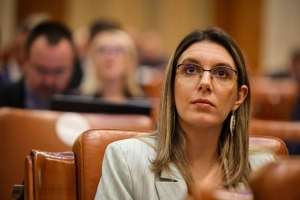Teachers have become immune to promises. One out of two teachers does not believe that the authorities will implement the promised salary increases, and nearly a third (29%) say their financial situation is precarious or modest, according to a survey titled "Teachers' Perceptions in the New School Year" published by World Vision Romania. Almost half of the respondents (49%) "have little or no confidence at all" that the government will fulfill all the promises related to teacher salaries made during the strike, 35% are reserved, and only 16% believe that the promises will be largely or very much respected. Only 32% of teachers consider the financial situation "good" or "very good," and 39% of respondents consider it acceptable, according to the survey on working conditions, resources, and motivation in the Romanian education system at the beginning of the school year. The survey was conducted by World Vision Romania at the end of August with a sample of 800 teachers. According to the research, 70% of teachers start the school year with a high level of motivation. "This percentage may also result from an increase in self-esteem (for 32% of respondents) and personal motivation (for 33% of respondents) after the strike by pre-university education employees this summer," according to a statement from World Vision Romania. According to the study, "following the teachers' strike, 24% of respondents note negative changes in their relationship with colleagues, indicating the possibility that the strike may have generated disputes in school offices, and another 12% of teachers note positive changes, in terms of increased solidarity among colleagues." The new school year begins with a new Pre-university Education Law, about which 19% of teachers say they are slightly or not informed at all. Another 28% of teachers say they are relatively informed, while 53% consider themselves largely or very well informed. Regarding the proposal for the scholarship award methodology for the 2023-2024 school year, 84% of teachers are against the elimination of social scholarships for commuting students, and a similar percentage calls for the reintroduction of study scholarships for students with a GPA above 7.50 from families where per capita income does not exceed the minimum wage. "In the same context at the beginning of the school year, 31% of teachers say that the state/quality of school buildings is only relatively optimal or sub-optimal when it comes to repairs, utilities, and sanitization. At the same time, 39% of respondents say the same about the quality of furniture and other equipment," the statement adds. Regarding digital infrastructure and personnel that could support teachers' activities, 51% of respondents say they do not have enough IT equipment to conduct quality education, while 34% say that school support staff need to be supplemented with support teachers, counselors, school mediators, etc. According to the study, 50% of respondent teachers believe they have too many students in their class to provide quality individualized education tailored to each student's needs. The situation is much more pressing in urban areas, where 56% of teachers who responded to the questionnaire face this issue, compared to 34% who teach in rural areas. The decline in the number of students in rural areas is due to several factors: declining birth rates, migration, a decrease in the number of schools and high schools in rural areas, and the enrollment of children in urban or peri-urban areas.
Teachers don't believe in salary increases
O.D.
English Section / 12 septembrie 2023




























































